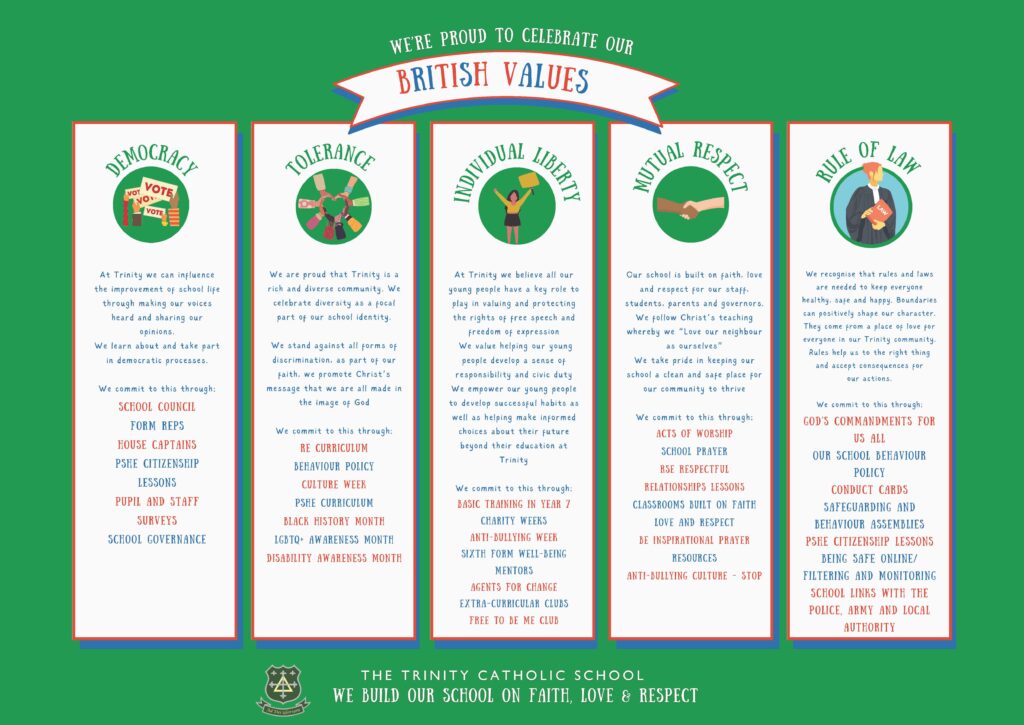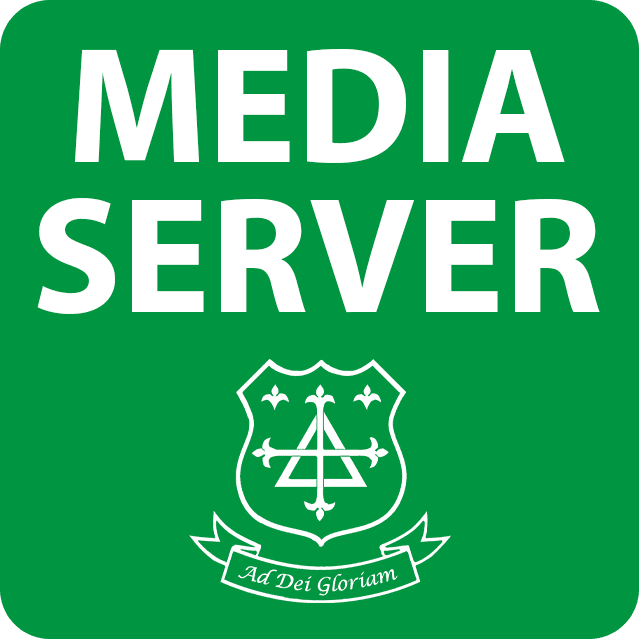BRITISH VALUES and OUR CATHOLIC ETHOS POLICY
At The Trinity Catholic School, we seek to promote and uphold the primacy of Christian values such as love, forgiveness, acceptance, justice and hope. We regard these values as universally and timelessly true. These are reflected in our school mission statement, ethos, faith practice, charity work, assemblies, academic and pastoral work, and general approach to the social, moral, spiritual and cultural education of our children.
More information is available for Parents, Teachers and Governors from the DfE and Home Office (linked to this article).
Safeguarding Children – Procedures and Practice Guidance Documents (Nottingham City)








